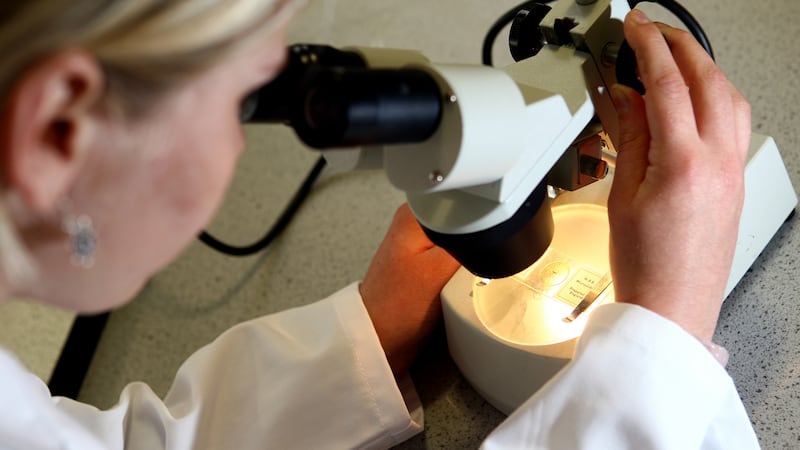You would think that if there was a way for Northern Ireland to use Brexit to double the size of our economy within five years and then use that prosperity to transform our whole way of life – including our politics – that the media would want to know all about it and our politicians would be all over it?
Except, demoralised and weary of new ideas, they don’t and they haven’t. We have about four weeks left to get the following – transformational – idea on to the agenda of the Brexit talks.
In return for agreed financial and security guarantees from London, Dublin and the EU, as well as incentives to move for those GB manufacturing businesses needing to remain in the Single Market and the Customs Union, NI offers to provide that home-from-home for these businesses by joining the EU in its own right. A mere 2 per cent transfer of GB manufacturers would double the size of the NI economy and prompt further growth, justifying the building of the North Channel tunnel to Scotland, bringing lasting prosperity and a future for our children.
Why will London back this? Because it resolves the Irish border question in Brexit negotiations and offers relief for GB business seeking to stay in the single market. Because it will circle the wagons against Scottish demands for independence and preserve the union as GB alone. And because it offers long-term savings of £7bn-plus per annum to the UK exchequer.
Why will Dublin back this? Because it resolves the Irish border question. Because it will establish a united Northern Ireland prioritising the running of the economy over irrelevant tug’o’war nationalisms. Because it will encourage both GB and US investment in the EU via Ireland as well as NI. And because it will provide for peaceful coexistence, north and south – a necessary pre-condition for unity if it is ever to come about.
Why will unionists back this? Because it will substantially expand and strengthen the bonds with GB. Because it will produce a united NI. Because it will deliver economic growth for generations to come, free of the nightmare of repetitive border polls. Because it will make NI a member of the EU but not part of a united Ireland.
Why will nationalists/republicans back this? Because NI will join the EU. Because NI will leave the UK. Because it will bring untold prosperity, a level playing field, and political maturity. Because it will create ever stronger cooperation between north and south without upsetting unionists. Because their supporters will be empowered to express/enact their Ulster-Irishness.* Why will the EU back it?
Why not? Unlike Catalonia, it will not destabilise any EU member. It overcomes the border issue. It has the potential to create a continuous land connection with Ireland – its western-most member – and strengthen the EU, despite Brexit. It will keep the whole island, north and south, attractive to US investment as the remaining English-speaking EU member.
So what needs to be done?
We need to get everyone talking about this extraordinary once-in-a-lifetime opportunity and overcome the habitual disbelief in constructive change that pervades our political life. We must get it into the centre of our public debate while there is still time during the Brexit talks to achieve it and everything is on the table. And we must look to our businessmen and women as well as to our politicians. This chance to put our past behind us, to build a bright new future for our children and become the most exciting economy in Europe, will not come again. Here is a way out for everyone. Let business leaders and politicians seize this chance and waste no time in bringing it about.
GARVIN CRAWFORD
Comber, Co Down
*garvincrawford.co.uk/ideas/consumer-choice-democracy
Some core principles for any new Irish constitution
The recent exchanges between An Taoiseach Leo Varadkar and Gerry Adams, the leader of Sinn Féin have prompted me to make the following observations:
This exchange is but one more example of a southern government representative criticising Sinn Féin for not reaching agreement with unionists on the restoration of devolved government at Stormont. Those same southern politicians would do well to reflect on the fact that those who created the conditions for conflict and political instability in the north of the island bear the greater responsibility for resolving it. I’m thinking here primarily of the British state and to a lesser extent the southern Irish state whose founding leaders signed up for partition and the flawed political entities it created on both parts of the island.
While it is now generally recognised that partition has been an abject failure, the Irish people deserve something much greater than the ‘unity of both parts’ of the island. As a good starting point, let us begin a serious debate on the form a reunited Ireland should take by preparing a draft constitution that reflects the various shades of opinion across the island.
The following core principles should be central to any new constitution for a new all island state:
1) No section of our people should feel excluded or marginalised.
2) The right to hold opposing political views is safeguarded and cultural values are cherished and protected.
3) Where structures are enshrined in law which for the first time ever in an independent all-Ireland context give full expression to Irish people of a unionist persuasion who identity with the British state while accepting the wish of future majorities on both parts of the island to form an independent all Ireland state.
PETER FEE
Miltown Malbay, Co Clare
Up the republic
I salute the brave people of Catalonia in declaring independence and establishing a new republic, achieved using the ballot box. May solidarity equality and justice be in your favour. The actions of the Madrid government in dissolving the Catalan parliament shows little or no respect for democracy (a wise man once said if voting changed anything they would
abolish it).
Where have we seen this before? The Irish general election in December 1918 resulted in a landslide victory for Sinn Féin, the first meeting of Dáil Éireann held in January 1919 where a declaration of independence was announced and a sovereign state declared a new republic was born, the proceedings of that momentous day were conducted in our native language.
Our new republic was dismissed by Westminster and our democratic efforts disrespected, the brutal British empire, true to form, resorted to violence in what became known as the war of independence.
Viva la republica de Catalonia
FRANK GLYNN
Cricklewood, London
Political patronage
Sinn Féin has gradually turned away from the principled republican organisation it once was to one that is populated by individuals whose main interest is aggrandisement. It is a party that relies heavily on the cronyism and clientelism which it had frequently criticized political parties south of the border for. Sinn Féin used its influence in Stormont to bypass normal accountability mechanisms to construct, along with the DUP, a ‘social investment fund’ that was nothing more than a system of political patronage. Likewise on Belfast city council, and again along with the DUP, it bypassed the normal processes of scrutiny to award £1m to a republican social club in west Belfast, supposedly to promote tourism to the area allied to the new transport hub.
Those in Sinn Féin who would like to consider themselves as allies of former republican heroes now want to take a close look at themselves and rededicate themselves to republican goals rather than trying to profit from the sacrifice of those heroes.
E McAVOY
Belfast BT11







